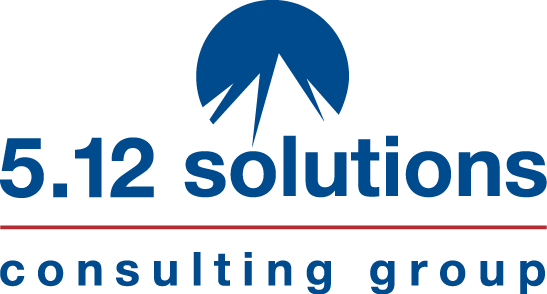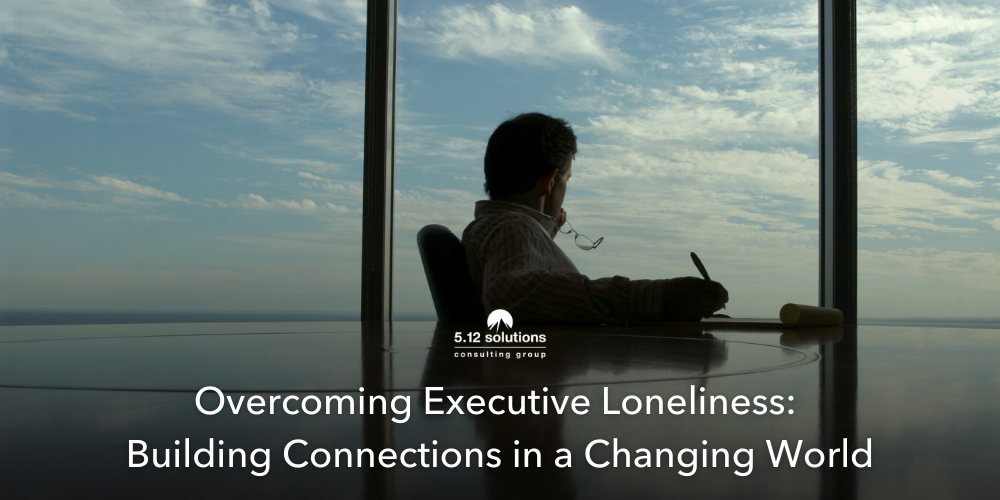In today’s fast-paced and ever-evolving work environment, executives face unprecedented challenges and expectations. To thrive in this environment, leaders need to adapt and build meaningful connections to combat the growing issue of executive loneliness. In this episode of the Future of Leadership podcast, we explore the critical topic of executive loneliness and how to overcome it.
About Our Guest: Nick Jonsson
During this podcast, I had deep discussions with guest Nick Jonsson, a CEO, entrepreneur, and the author of “Executive Loneliness.” With 25 years of experience leading successful businesses, Nick has a deep understanding of the unique pressures and expectations placed on executives. In his book, Nick delves into the often overlooked issue of executive loneliness and disconnection, providing valuable insights and actionable steps for executives seeking to overcome feelings of isolation.
Nick’s Personal Journey
Nick’s motivation to address executive loneliness is deeply personal. He shares his own experience of hitting rock bottom in 2018 when he was at the peak of his career, both professionally and physically. Despite his external success, he felt unfulfilled and ungrateful. Nick found himself in a downward spiral, resigning from his job and filing for divorce. Loneliness and alcohol addiction became his companions. It was only when he hit rock bottom that Nick’s journey of recovery and transformation began.
Trends in Executive Loneliness
The current landscape of executive loneliness is emphasized by challenges brought about by the post-COVID era. Layoffs, job insecurity, and economic uncertainties have created a taboo around discussing feelings of isolation, stress, or burnout in the workplace. Executives, especially senior leaders, often keep their struggles hidden to protect their positions.
There is a need for a cultural shift where it becomes acceptable not to be okay. The workplace should encourage vulnerability, and psychological safety as well as foster honest, deep conversations about mental health and well-being.
The Impact on Men
Research reveals that men, in particular, find it challenging to discuss their emotions or seek help. While women tend to have close friends with whom they can be vulnerable and share their feelings, men often engage in surface-level friendships focused on activities rather than emotional connection.
Creating a Culture of Connection
Nick emphasized the importance of creating a deeply human workplace culture where employees can be their authentic selves. In this environment, it’s okay not to be okay, and people can openly discuss their struggles without fear of repercussions.
Strategies to Overcome Executive Loneliness
Nick’s book offers practical steps to combat executive loneliness. The first critical step is to recognize and acknowledge one’s feelings of loneliness. Just like a business conducts regular stock takes, individuals need to take stock of their own lives and evaluate their physical, emotional, and relational well-being.
Unique Pressures and Expectations
There are several unique pressures and expectations faced by executives today, contributing to their loneliness and disconnection:
- Constant Change: The fast-paced nature of the business world, with digitalization, optimization, and restructuring, means that executives seldom have time to pause and reflect.
- Job Insecurity: The gig economy has created a constant sense of instability, leaving executives on edge about what the future holds.
- Living Behind a Facade: Executives often feel pressured to put on a show, both personally and professionally, leading to a facade of success and happiness, which Nick describes as a “smiling depression.”
Executive loneliness is a pervasive issue in today’s rapidly changing workplace. To address this problem, executives must take the initiative to recognize their feelings of loneliness and build a supportive, authentic, and deeply human workplace culture. This change can lead to improved mental well-being, healthier relationships, and a more connected and thriving workforce.
The Smiling Depression Dilemma
In today’s social media-driven world, many individuals experience Smiling Depression, a phenomenon wherein they appear happy on the outside while struggling with feelings of sadness and inadequacy within. Scrolling through Instagram and Facebook can often leave people feeling worse about themselves. This raises an important question: What causes this disparity between our social media personas and our true emotions?
Nick provides an answer, highlighting the fear of missing out (FOMO) as a major contributor to this dynamic. He explains how constant comparison with others on social media platforms can lead to self-esteem issues and a sense of inadequacy. For instance, his wife, a former actress, would compare herself to friends still in the industry and feel envious. The guilt stemming from such comparisons can be debilitating and is a significant part of what smiling depression is about.
Seeking Support
Recognizing that you might be experiencing smiling depression is the first step toward healing. As Nick puts it, taking stock of your life and acknowledging your issues is essential. This involves an honest self-assessment and creating a list of concerns or problems you are facing. It is important to note that while comparison can be healthy and inspiring at times, excessive self-critique can be detrimental.
Many people, especially those in leadership roles, struggle with asking for help. This vulnerability can be daunting but is crucial for personal growth.
Jonsson’s personal journey with asking for help included:
- A recovery program for an alcohol problem
- Visiting a doctor
- Consulting a nutritionist
- Engaging with a coach to rebuild his life
He underlines that support is available from experts and fellow individuals who have experienced similar issues. The act of asking for help, though challenging, is liberating and often leads to profound positive change.
Loneliness and Support
There is a loneliness that often accompanies personal crises. Nick Jonsson’s book even includes a directory of support resources to help others facing similar challenges. Coaching and psychology are valuable resources, and the stigma around seeking mental health support is gradually receding. With the advent of online services, the barrier to seeking help is lower, as anonymity can be maintained, especially in the context of virtual meetings.
People generally have an aversion to asking for help, and the fear is largely unfounded. In fact, the act of asking for help can often be met with empathy and willingness to assist. Jonsson shares how his organization has made it easy for members to ask for help through an app that connects them, making it accessible and convenient. This mechanism reduces the fear associated with seeking assistance and encourages more openness within the community.
Overcoming the Fear of Vulnerability
For many individuals, asking for help is a vulnerable process. It often involves confronting the ego and the belief that we can handle everything on our own. People generally love to help others, thus, the act of asking for help is met with more support and less resistance than people might anticipate.
Moreover, Jonsson describes the importance of “giving it back.” It’s a fundamental principle in many 12-step recovery groups, emphasizing the need to share the knowledge and support one has received with others. This concept forms a circular exchange of support and is vital for the sustainability and success of recovery groups.
The Impact of Healthy Relationships
Nurturing healthy relationships is an important aspect of overcoming executive loneliness and disconnection. Jonsson shares a significant step in his recovery process, which involved addressing past issues and mending strained relationships. He encouraged those seeking recovery to create a list of individuals with whom they had negative or hurtful experiences, and then take action to rectify these situations. This might involve apologies, open communication, or even self-reflection. The process can be liberating, as it frees individuals from the emotional baggage that stems from unresolved issues.
Nick described a personal experience where he made amends with his sister after realizing he had been rude to her in the past. This simple act of apologizing and reconciling their relationship led to a positive transformation in their bond.
Finding Purpose and Giving Back
As a final step in his journey to recovery, Nick shared the importance of finding a larger purpose in life. In the process of healing, individuals often need to deflate their egos and accept that there might be a higher power or greater purpose beyond themselves. This shift in perspective can lead to a sense of humility and open-mindedness.
One key aspect of finding purpose is embracing vulnerability and the realization that not everything revolves around the individual. This shift in mindset helps people become more approachable and open to the idea of being of service to others. Jonsson shares that in his company, they have implemented a “fail fast” policy, encouraging employees to acknowledge their mistakes, fostering a culture of learning from them. By accepting vulnerability and valuing personal growth, businesses can create a healthier and more supportive work environment.
Embrace Vulnerability to Battle Executive Loneliness
The need to maintain an image of happiness and success while facing personal struggles can be exhausting and detrimental to mental health. Nick Jonsson’s journey through recovery and his candid discussion shed light on the importance of seeking support, nurturing healthy relationships, and finding a higher purpose in overcoming loneliness and emotional turmoil.
In today’s business world, the hope is for more vulnerable leaders who are willing to share their struggles and challenges openly. The stigma around vulnerability and seeking help is gradually diminishing, and this openness can lead to healthier relationships and a more supportive work environment.
By embracing vulnerability, asking for help, and giving back, we can address the underlying issues of executive loneliness and foster personal growth and emotional well-being.
To hear our discussion and learn more, check out the full podcast here: https://512solutions.com/overcoming-executive-loneliness-insights-from-ceo-nick-jonsson/.
Want to learn more about how we can help transform your people into confident and action-oriented leaders? Schedule a complimentary insight session with us here.
Our greatest gift as human beings is our ability to adapt. I believe that the more we can tap into our humanity, the more successful we can be in business and beyond. That’s why I focus so much of my work on giving leaders the roadmap needed to cultivate healthier, more aligned, and deeply human workplaces. I invite you to explore my latest book, where I explore the Six Cs of ‘The Human Workplace Needs Model’.

